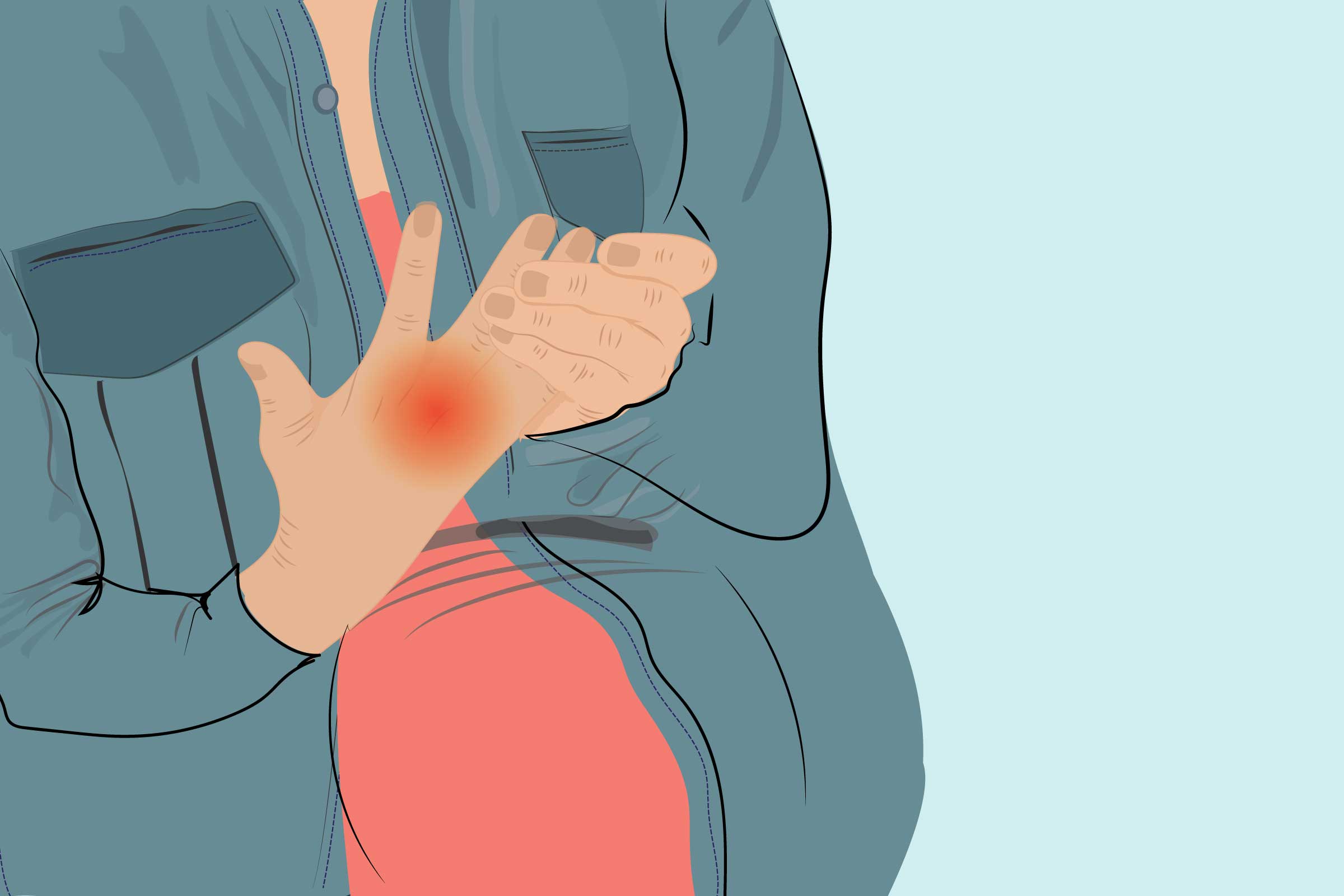

Finding out you’re pregnant when you have an autoimmune disease like inflammatory arthritis is a swirl of a million emotions. You’re thrilled (and perhaps relieved) that you’re finally expecting, but you’re also likely a nervous, anxious wreck. Is it safe to take my medication? Will the pregnancy make my pain worse? Will I feel well enough to take care of a newborn who never sleeps?
There’s also another, perhaps less well-known, issue that pregnant women with arthritis face: having a higher risk of premature delivery. Now, a study recently published in the journal Arthritis Care & Research aims to understand why that’s the case.
Rheumatologist Chelsey J.F. Smith, MD, of University of California San Diego, and colleagues studied 657 women with rheumatoid arthritis, 170 with juvenile idiopathic arthritis, and 564 healthy women who had babies between 2004 and 2017. They found those with RA were more than twice as likely (and those with JIA were 1.8 times as likely) to give birth prematurely as healthy women were.
Certain medications and the severity of disease both seemed to play an important role in the increased risk.
Using the anti-inflammatory drugs corticosteroids throughout pregnancy was associated with between a double to five-fold increase in premature delivery risk among women with RA or JIA, the study found. Expecting mothers who had active rheumatoid arthritis and those who developed active disease anytime while pregnant were also likelier to deliver their babies preterm: both at a rate of about one-and-a-half times that of healthy mothers.
(Get more information about having a safe and health pregnancy with our Family Planning Patient Guidelines.)
“Our study may not be applicable to all patients, but our findings, along with other studies, suggest that women with rheumatic disease are at increased risk for certain pregnancy complications, and should therefore be followed closely throughout pregnancy by both a rheumatologist and a high-risk ob-gyn,” says Dr. Smith. “However, it is possible for these women to have successful and safe pregnancies.”
What the Study Findings Mean for You
Rheumatologist Michael D. Lockshin, MD, professor of medicine and obstetrics and gynecology at Weill Cornell Medicine and director of the Barbara Volcker Center for Women and Rheumatic Diseases at the Hospital for Special Surgery in New York City, told CreakyJoints that the study is both good and very believable. He added that the findings were predictable given what’s known about autoimmune disease pregnancies.
“In general, pregnancies in women with any chronic illness, such as juvenile arthritis, risk premature delivery,” he says. “Meticulous management of disease activity, medications, and known risk factors can result in highly favorable outcomes.”
If you have inflammatory arthritis and are pregnant or are thinking about trying to get pregnant, there are things you and your doctor should discuss to help ensure a healthy pregnancy and baby. Dr. Lockshin advises you ask your doctor the following questions:
- Is my illness in the best possible control? Patients with active illness have higher risks than do those in remission.)
- Are the medications I am taking compatible with pregnancy? Many are — and they should be continued — and those that are not should be changed.
- Do I have arthritis-associated damage that could interfere with pregnancy? These could include severely damaged joints, kidney disease, heart disease, lung disease.
- Will I be well enough to care for a child?
- Do I have autoantibodies that can interfere with pregnancy? These include antiphospholipid antibody, anti-ro/ssa, and anti-la/ssb.
- Are my obstetric and rheumatology physicians informed about and comfortable with managing my pregnancy? American College of Rheumatology guidelines recommend frequent contact between your ob-gyn and your rheumatologist. You should feel very comfortable with both doctors and the way they address your questions and concerns about your risk factors, medication, and any additional testing you might need during pregnancy to make sure you and your baby are healthy.
It’s especially important to make sure your arthritis is controlled, says Dr. Lockshin. “Patients with quiescent [dormant] disease always do better than those with active disease,” he says, noting that many medications are safe to use during pregnancy. “If a patient is taking and is doing well on these medications, she should not discontinue them during pregnancy.”





